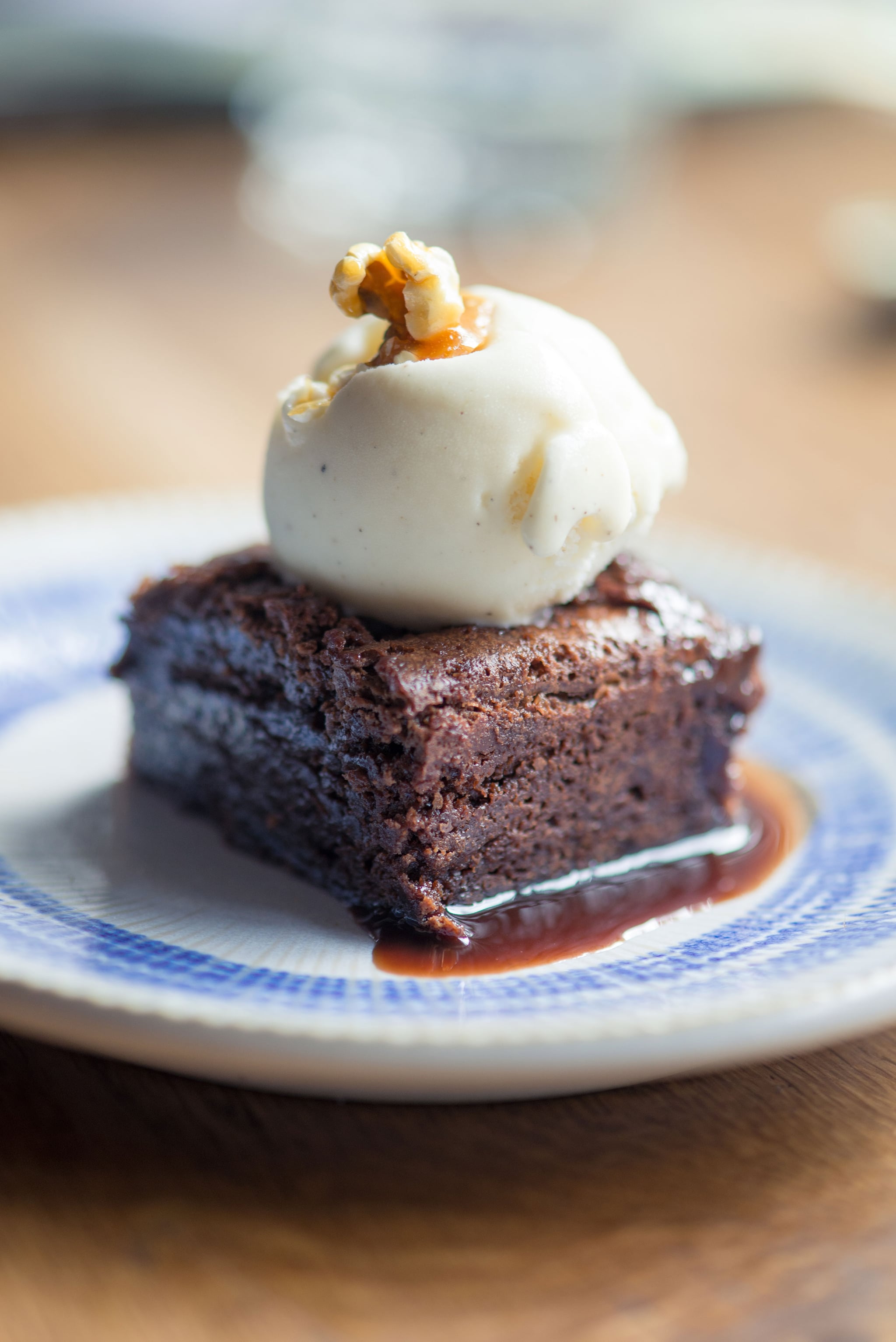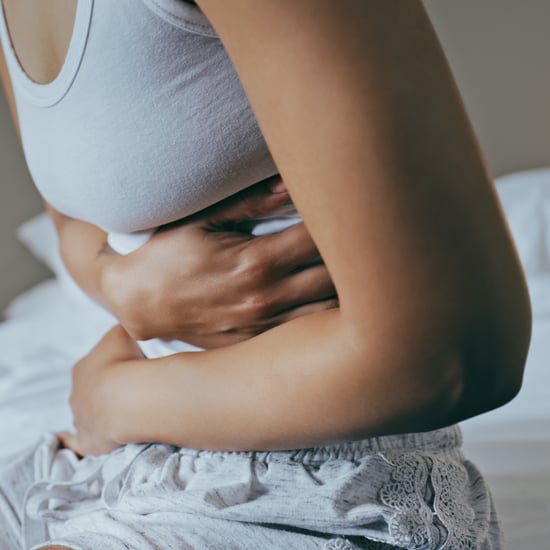A Dietitian Explains Why You Shouldn't Feel Guilty Eating
Guilt Is Not an Ingredient! A Dietitian Explains Why You Shouldn't Feel Bad About Eating

Brownies always get my attention, so when I saw the words "'Guilt' is not an ingredient" written in icing on a batch baked by registered dietitian Brenna O'Malley, creator of the health blog The Wellful, the words resonated with me so much. Brownies are like edible happiness that should be enjoyed. In fact, all food should be enjoyed! As a dietitian who wants to help people ditch diets and food guilt — and to improve their relationship with food — O'Malley shares reasons why you shouldn't feel guilty about eating certain foods or just eating in general.
Food Isn't "Good" or "Bad"
It's important to understand that "no food is 'good,' 'bad,' or makes you 'guilty,'" O'Malley said. When we label foods this way, it influences our perception of the foods and our behaviours around them. If we label a food as "bad," the response is to restrict that food completely or to only allow ourselves to have it on special occasions. "This sets you up for feeling out of control around the food when you do have it, and then feeling guilt or shame after," O'Malley said.
When you ditch the labels and restrictions around foods, you can choose the ones you actually want, when you want them, and enjoy them, too. "When foods become something you can have any day, it establishes trust in your body that this isn't the last time you'll be able to eat that food — so it helps get rid of that 'last supper' mentality, O'Malley explained.
"Labelling foods as 'guilt-free' isn't accurate. No food has guilt as an ingredient, so all foods are 100 percent guilt-free," O'Malley said. She added that labelling foods as "guilt-free" is a marketing strategy and said, "Unless you're stealing food, there's no reason to feel guilty about eating food, ever."
Food Is Nourishing in So Many Ways
There are so many different reasons we choose the foods we do — for nourishment, satisfaction, energy, tradition, taste, convenience, price, etc. O'Malley said instead of choosing foods based on whether you think they're "good" or "bad," change your mindset and ask yourself, "What do I need right now?" Welcome all the different ways food can nourish you and the reasons for eating it. O'Malley said, "This can be a life-changing shift in your relationship with food and overall health."
Food Makes Us Happy
"Liking food and enjoying eating is a good thing and not something to fear or feel badly about," O'Malley said. Food can provide comfort and can be connected to memories growing up or to loved ones. It can make you feel energised and support you in getting through a workout or a day doing the things you want to do. Food is often part of celebrations and can be a way to bring people together. Food tastes good and is meant to bring us joy.
Cooking, baking, and eating can also be a way to cope with stress, sadness, or anxiety. O'Malley said that "emotionally eating isn't detrimental; it's a coping mechanism." You're adapting to your environment and circumstances and taking care of yourself — pretty neat of you! She advised that like any coping mechanism, we don't want only one. So also thinking of some other things that soothe you and make you feel good can be helpful.
"You don't need to earn your food, and you don't need to burn [off] your food."
We Need Food to Survive
We all need to eat, every day — it's nonnegotiable. Eating keeps us alive, gives us energy, and is a way we can take care of ourselves. Food is meant to taste good, and enjoying food is a positive thing. Having a positive relationship with food actually increases the variety of our diet, which helps us take in more valuable nutrients to keep us healthy. O'Malley wants to remind us that, "You don't need to earn your food, and you don't need to burn [off] your food."
How Can I Stop Feeling Guilty About Food?
Listen to your body: "Judgement over curiosity can be your new mantra," O'Malley said. Instead of judging the amount of food or what you're eating, get curious. Our bodies are dynamic. We do need and gravitate toward different types and amounts of foods on different days — that's normal! "Acknowledging your hunger or cravings for a certain food instead of judging it can help you get to know your body better, and be more in tune with how you feel and what foods and eating patterns work for you," she explained.
Question where the guilt is coming from: Ask yourself, "Who says I need to feel bad for eating things that taste good?" "Who says that I need to see food as an enemy instead of what keeps me alive?" "Who came up with the idea that I'm 'bad' for eating one thing versus another; who made that rule?" Challenging the negative thoughts that surround eating certain foods can make you feel empowered and can help those feelings dissipate so you see a brownie, ice cream, or pizza as just food.
Ditch the diet mentality: If you've ever felt bad about "breaking a diet," it's not the food, it's the nature of dieting that's making you feel guilty. Diets are restrictive in nature, so certain foods become OK or off-limits, which makes us see them as "good" or "bad." O'Malley explained that it quickly makes eating into a black-and-white conversation, something we're either doing "right" or "wrong," or we feel we're "eating well" or "eating poorly." How we eat needs to be sustainable and support our health and lifestyle, so if you're using language like "breaking your diet" or "cheating," that's a clue that your way of eating might have been failing you — it wasn't sustainable, flexible, or realistic.
O'Malley said, "The best way to get away from this feeling is to eat in a way that allows you to enjoy foods you like, and foods that make you feel good, every day. Ditch the labels, and start moving toward that grey area where eating can be flexible and individual to you."







